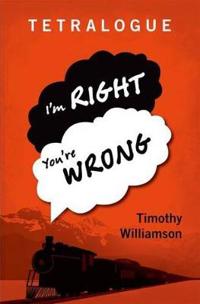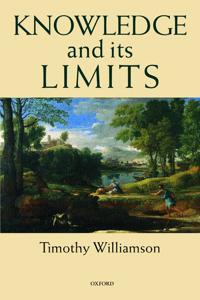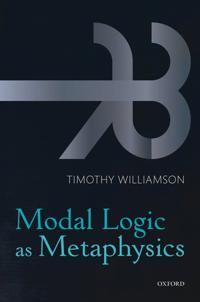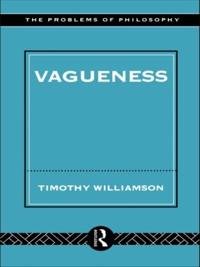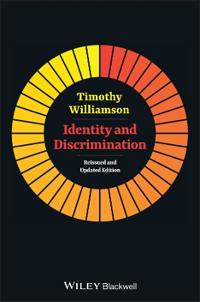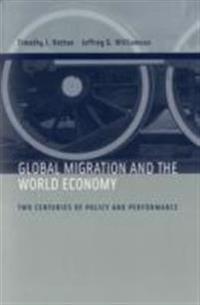Tetralogue (Inbunden)
avTimothy Williamson
ISBN: 9780198728887 - UTGIVEN: 2015-04Four people with radically different outlooks on the world meet on a train and start talking about what they believe. Their conversation varies from cool logical reasoning to heated personal confrontation. Each starts off convinced that he or she is right, but then doubts creep in. In a tradition [...]
Knowledge and Its Limits (Häftad)
avTimothy Williamson
ISBN: 9780199256563 - UTGIVEN: 200210"Knowledge and its Limits" presents a systematic conception of knowledge as a kind of mental state. Timothy Williamson casts light on many philosophical problems: scepticism, evidence, probability and assertion, realism and anti-realism, and the limits of what can be known.[...]
Modal Logic as Metaphysics (Inbunden)
avTimothy Williamson
ISBN: 9780199552078 - UTGIVEN: 201303Are there such things as merely possible people, who would have lived if our ancestors had acted differently? Are there future people, who have not yet been conceived? Questions like those raise deep issues about both the nature of being and its logical relations with contingency and change. In Moda[...]
Vagueness (Häftad)
avTimothy Williamson
ISBN: 9780415139809 - UTGIVEN: 199603If you keep removing single grains of sand from a heap, when is it no longer a heap? From discussions of the heap paradox in classical Greece, to modern formal approaches like fuzzy logic, Timothy Williamson traces the history of the problem of vagueness. He argues that standard logic and formal sem[...]
Identity and Discrimination (Häftad)
avTimothy Williamson
ISBN: 9781118432594 - UTGIVEN: 201304"Identity and Discrimination," originally published in 1990 and the first book by respected philosopher Timothy Williamson, is now reissued and updated with the inclusion of significant new material. Williamson here proposes an original and rigorous theory linking identity, a relation central to met[...]
The Philosophy of Philosophy (Häftad)
avTimothy Williamson
ISBN: 9781405133968 - UTGIVEN: 200801The second volume in the Blackwell Brown Lectures in Philosophy , this volume offers an original and provocative take on the nature and methodology of philosophy. Based on public lectures at Brown University, given by the pre-eminent philosopher, Timothy Williamson Rejects the ideology of the 'ling[...]
The Philosophy of Philosophy (Inbunden)
avTimothy Williamson
ISBN: 9781405133975 - UTGIVEN: 2007-12-31Age of Mass Migration, The: Causes and Economic Impact (Inbunden)
avTimothy J. Hatton, Jeffrey G. Williamson
ISBN: 9780195116519 - UTGIVEN: 1997-11-01Global Migration and the World Economy (Häftad)
avTimothy J. Hatton, Jeffrey G. Williamson
ISBN: 9780262582773 - UTGIVEN: 200802World mass migration began in the early nineteenth century, when advances in transportation technology and industrial revolutions at home enabled increasing numbers of people to set off for other parts of the globe in search of a better life. Two centuries later, there is no distant African, Asian, [...]

